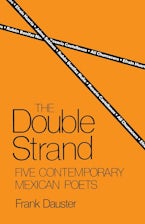Two strands, one indigenous, the other imposed, pro-duce the poetic and cultural tensions that give form to the work of five contemporary Mexican poets—All Chumacero, Efrain Huerta, Jaime Sabines, Ruben Bonifaz Nuno, and Rosario Castellanos. Although all five are significant figures, only Castellanos has yet been widely studied in the United States, primarily for her novels and her relations with the feminist movement.
In spite of a number of rather basic differences in their work, these poets share and write within a complicated culture rooted in both the pre-Hispanic and the European traditions. Their poetry reflects this in its emphasis on death as a constant presence and in the echoes of both Aztec ritual poetry and European poetry.
Although apparently very different formally and thematically, the five share a number of concerns. Each of them writes out of a contradictory inner tension; each is preoccupied with the effort to shape language as part of a personal voyage of discovery; each is haunted by death and seeks realization or plenitude through love of some kind. And each of them, ultimately, finds there is no escape.
As Frank Dauster concludes, "The poetry of Mexico, like its people and its society, reflects the fusion of two worlds, and these complex poets of the double strand operate freely and imaginatively within it." Although addressed primarily to specialists in Latin American literature, The Double Strand also speaks to those interested in the complex interaction between two widely differing cultural heritages, and in the rich fusion this blending produces in Mexican letters.

